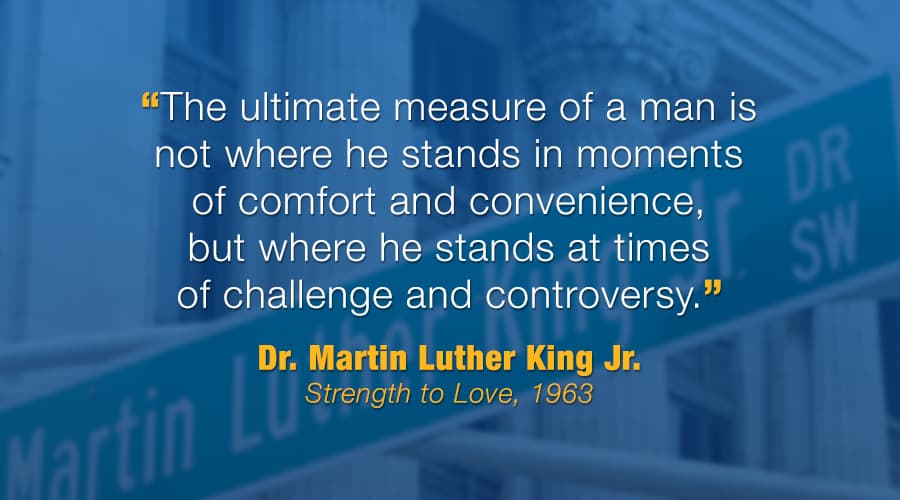By Stan Thompson, MD, Chief Clinical Officer, LifePoint Group, and Chair, TeamHealth Diversity and Inclusion Committee
The work of Dr. Martin Luther King Jr. makes America a better country, not just for blacks, but for women, other minorities, immigrants, descendants of immigrants, and therefore ALL Americans. He was the champion of peaceful resistance. Dr. King found a way to condemn evil without condemning the evildoer. He taught us that if love were the goal, then the path of hatred will never lead us there.
Martin Luther King Jr. Day is a U.S. federal holiday commemorating the birthday, Jan. 15, and accomplishments of Martin Luther King Jr. Legislation passed in 1983 makes the third Monday in January as an observed national day of service – a day ON, not a day OFF – to encourage all Americans to volunteer to improve their communities. How will you celebrate this great American today?
About Dr. Martin Luther King Jr.
Martin Luther King Jr. was a social activist and Baptist minister who played a key role in the American civil rights movement from the mid-1950s until his assassination in 1968. Dr. King sought equality and human rights for African Americans, the economically disadvantaged, and ALL victims of injustice worldwide through peaceful protest. He was the driving force behind watershed events such as the Montgomery Bus Boycott and the 1963 March on Washington, which helped bring about such landmark legislation as the Civil Rights Act and the Voting Rights Act. Dr. King was awarded the Nobel Peace Prize in 1964.
The work of Dr. King and other civil rights leaders and groups led to the passing of the Civil Rights Act of 1964, signed by then-President Lyndon B. Johnson. The passing of this Act was a landmark event in American history. To this date, it is the most important piece of legislation for all marginalized Americans since the Emancipation Proclamation. This Act prohibits discrimination based on race, color, religion, sex, or national origin. Provisions of this Civil Rights Act also forbade discrimination based on sex and race in hiring, promoting, and firing. This Act also led to the passage of the Voting Rights Act of 1965, which outlawed the discriminatory voting practices adopted in many southern states after the Civil War. It also played a role in ending the race-based immigration quota system.
Just a few months after passing the Voting Rights Act, Congress passed the Immigration and Nationality Act of 1965, abolishing the race-based immigration quota system and replacing it with a system that prioritized refugees, people with special skills, and those with family members living in the United States. It also forbade discrimination in the issuance of immigrant visas on the basis of race, sex, nationality, place of birth, or place of residence.
